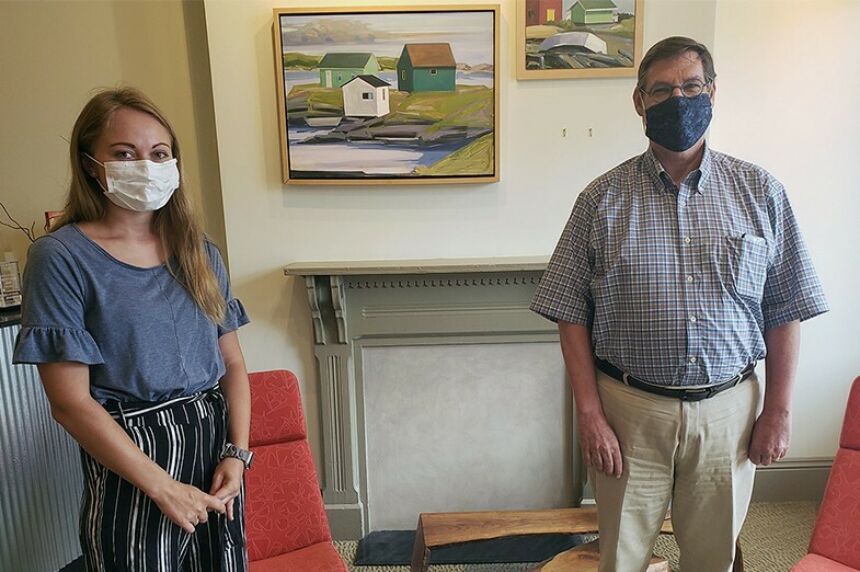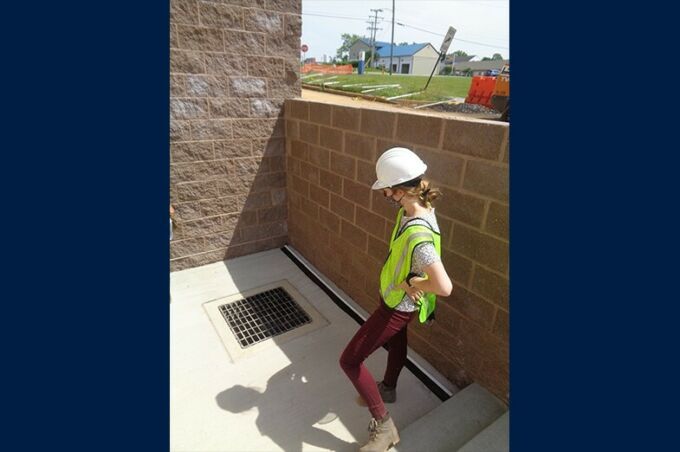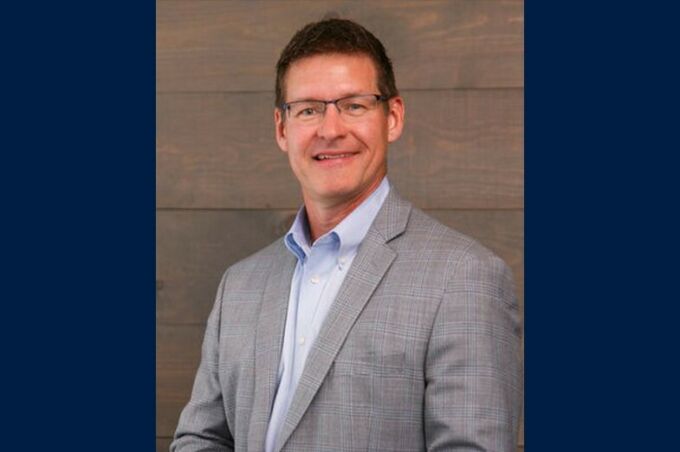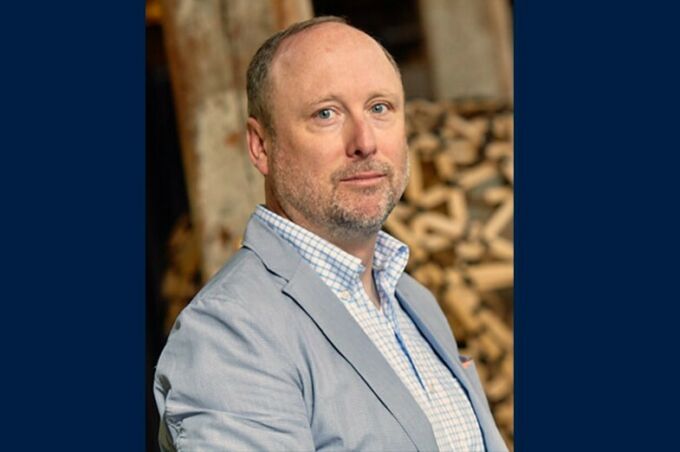May 17, 2021
Stuckeman School alumni shift internship programs to the virtual environment

UNIVERSITY PARK, Pa. — The coronavirus pandemic has caused most businesses around the world to rethink how they offer internship experiences to budding young professionals. Design firms are no exception and several Penn State Stuckeman School alumni have been integral in transforming their practices’ internship programs to experiences that can be offered in a virtual environment.
A variety of experiences
Frank Dittenhafer, president of Murphy & Dittenhafer Architects and a 1978 architecture alumnus, successfully hosted two virtual internships last summer. The experience allowed students to simultaneously contribute to, and learn from, the practice virtually. It also provided students with the opportunity to meet at some of the firm’s construction sites and to attend safely distanced meetings in the company’s York, Pennsylvania location. According to Dittenhafer, the virtual portion of the internship allowed for interns to learn a greater variety of skills. “The virtual internship is a very different type of experience that would really involve a greater variety of topics and experiences for the interns since the in-person portion of the internship was going to be limited,” he said. “We were still able to have an occasional safely distanced meeting in our office, so it was the right number of different experiences each week of the program.” In addition to the visits to construction sites, walk-throughs and progress meetings with Murphy & Dittenhafer construction administration architects, contractors, subcontractors and material suppliers, students interning with the firm participated in internal project design reviews with the firm’s architects/designers via Zoom and project design presentation meetings with the firm’s clients via Zoom or Microsoft Teams. Additionally, the students were assigned specific design projects “of their own” to work on, such as assisting with the development a series of 3D color visual images for the firm’s work on a national heritage area for a non-profit organization and working with an architectural designer to further develop the exterior canopy design for a new intergenerational center building the firm designed. Dittenhafer explained that in order for the internship program to be a success, careful planning went into the process to ensure that the students would thrive in a virtual environment. “There has to be some structure and the right balance between the intern moving to a couple different Zoom meetings but also non-Zoom experiences, because we all have Zoom fatigue,” explained Dittenhafer. “It has to be a mix and it has to be a balance. It can’t be too much in one day, or too much in one week, so I really think it really takes some effort on the firm’s part.” Dittenhafer said that his expectation is for each intern to have “a rich, engaging, varied and possibly inspiring experience” with Murphy & Dittenhafer by having been exposed to a broad range of design situations on a variety of architectural commissions, including small, mid-size and large projects in the rural, urban and ex-urban settings. Although unanticipated and not an objective of the firm’s virtual internship program, recent Penn State architecture graduate Harper Brockway, who participated in a virtual internship with Murphy & Dittenhafer last summer and expressed an interest in working with the firm after completing her bachelor of architecture degree, accepted an offer of employment with the firm and began her full-time position on May 17.Creative ways of engagement
Morgan Pierce, a 1989 landscape architecture alumnus and principal of 3North, usually hosts student interns each year. The opportunity allows for one architecture student, one landscape architecture student and one interior design student to learn from the Richmond, Virginia-based unified design firm. The company’s internship program was postponed last summer due to the pandemic, but it is set to resume this summer in the virtual environment. The firm reached out to the three students who were slated to participate in last year’s program to ask if they would like to participate this summer and all three students accepted the offer, according to Pierce. They will begin with 3North on June 1. “Once we had a better handle on what the pandemic was going to mean for this year, we reached out to the students who we had awarded the internships to last year, asking if they wanted to renew their participation, knowing that they would be graduating seniors and this was strictly still an internship,” Pierce said. “All three of them decided to join us.” Pierce’s firm hosted one part-time intern in the fall and one part-time intern in the spring, allowing the firm to test out how the internship program will run this summer. He said the firm is trying to find new creative ways to engage the students as it is still unknown when they can be invited to physically join the office on a full-time basis.Real-world interactions
Mark Hackenburg, a 1988 landscape architecture graduate and principal of RGS Associates, is another Stuckeman School alumnus who has faced the obstacle of hosting virtual internships. Hackenburg’s Lancaster, Pennsylvania-based firm will be hosting interns this summer for the first time since the pandemic and is anticipating that the virtual setting will allow for some benefits along with its challenges. “I think the biggest challenge that we’ll see, and that we anticipate, is the consistency of communication and the quality of interaction,” said Hackenburg. “Our interns have always been under the wing of a senior designer, and that’s just harder in a distanced environment.” The goal of RGS Associates, he said, is to provide students with real world circumstances and clients interactions. “We do our best to immerse them in project work by allowing them to lead an independent project and follow one or more specific projects through the design or construction process. We align them with a design team and a mentor to guide them in the design and plan development process, which gives them the opportunity to engage in client interactions, discussions and public meetings,” said Hackenburg. “In the end, we want our interns to have a well-rounded experience, which includes making significant contributions as part of the project team, not simply shadowing others. We want them to learn by doing.” Ultimately, Hackenburg hopes that the interns with RGS Associates gain confidence in any new skills they may have learned, and that they develop a more well-rounded perspective of how a professional office operates. “We also hope to increase their awareness of the opportunities that are available to them within their chosen field of study,” he said. For more Stuckeman School news, follow us on Twitter @StuckemanNews.



